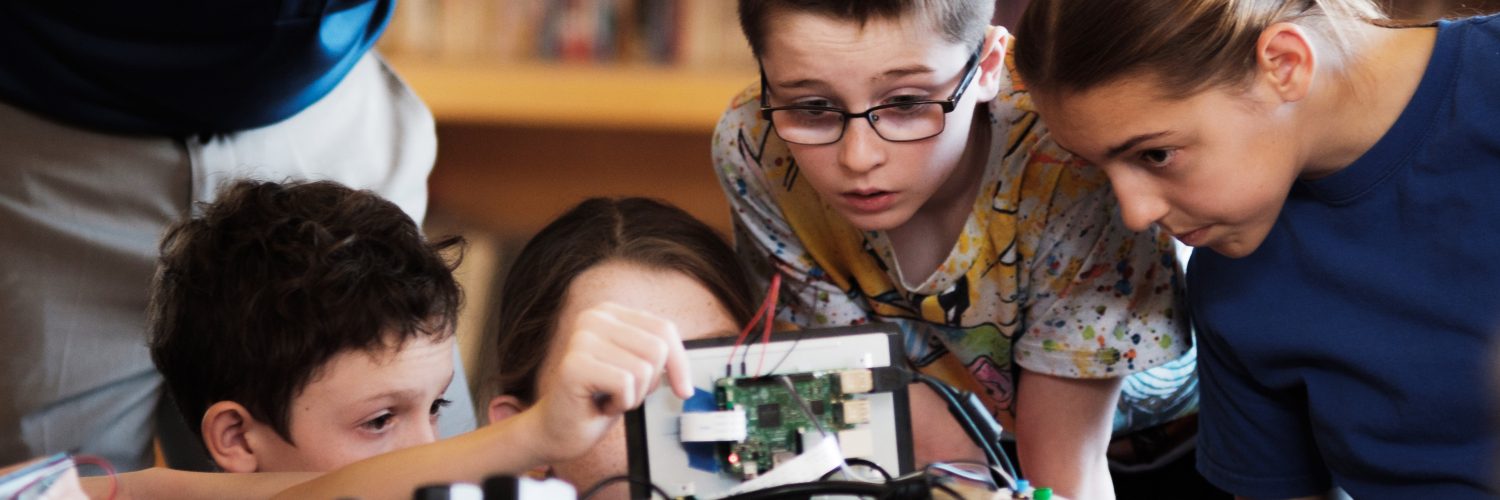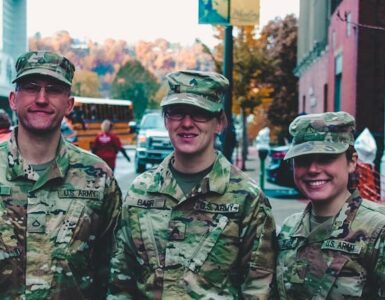Josh Schachter has spent his career studying how different ecosystems work and finding new ways to face challenges and solve problems.
CommunityShare, the Tucson-based education initiative Schachter founded, is an online and offline platform that allows teachers, students and parents to seek out individuals and organizations in the professional arena to show students the tangible results of learning and get them familiar with collegiate and professional settings. Since its launch in January 2015, the platform has connected about 7,000 students to partners in the Tucson region, Schachter said.
“What led to the idea of CommunityShare was looking at how to build, in a sense, a cloud of social capital,” Schachter said. “I kind of think of it as a human library of human books that any teacher and their students can tap into to bring that real-world experience and to bring professionals and others into the classroom, or to have young people go out into the community and work on projects.”
CommunityShare is the culmination of Schachter’s years of ecological research and experience as an educator. Now, the initiative has been ranked one of the world’s top 100 most-inspiring K-12 education innovations by HundrED, a global nonprofit that seeks out promising community-based learning programs and connects them with the resources needed to scale their efforts to reach more students.
“I saw it and I just thought it was such an amazing idea,” said Frederika Warren, a researcher at HundrED in London. “We struggled to find an initiative that met our criteria for involving community and parents, which is what we found amongst all stakeholders in education was a massive priority and a major need. I saw CommunityShare and I just felt it ticked all the boxes for what we were looking for.”
This will be the second collection of 100 education innovations around the world recognized by the Finland-based nonprofit. HundrED was created to celebrate the 100-year anniversary of Finland’s independence in 2017, Warren said.
“They were looking for what makes education in Finland great, and they looked for initiatives within the Finnish context,” Warren said. “This was very successful, so they decided the following year to take it on a global level, creating the HundrED global collection.”
Schachter said he was excited about the acknowledgment from HundrED, not just for CommunityShare but for Tucson and Arizona as a whole.
“Often, Arizona isn’t recognized for its education system even though there are amazing people working within the system,” Schachter said. “So that was exciting, and it was an incredible opportunity to go to Finland in November and present our work to folks around the world.”
Schachter said he did “okay” in school but didn’t feel inspired — he didn’t understand why he was learning things or what he was supposed to gain from the experience. It wasn’t until he connected with a wildlife biologist during high school to study turtles and alligators in South Carolina and Alabama that he realized what it actually meant to be a scientist versus studying science in school.
“That kind of real-world experience and relevance is what eventually ended up leading me to pursue a graduate degree in ecology and then a career in that,” Schachter said.
That experience formed the cornerstone for Schachter’s passion for education, which was further strengthened when he taught photography to high school students in Tucson.
“I just saw how disconnected our high school was from the broader community, and also our students, and started asking our students what were their passions and goals in life,” he said.
Schachter created CommunityShare to start a dialogue between teachers, parents and students, and to offer young people realistic, in-depth perspectives on various occupations within their own communities.
Schachter told the story of a CommunityShare partner who is a surgeon, a professor at University of Arizona and a videographer. A Tucson high school teacher was seeking a videographer for a class project, and connected with the professor.
“He ended up spending a month, actually — or maybe even longer — mentoring the students, because they wanted to create a video about how real-world learning was important in their school,” Schachter said. “It was really cool because he taught them sort of how to plan to create a movie, and then the actual technical part. Then, CommunityShare gave them a grant to rent a bus to visit the University of Arizona so that they could see what it’s like to be on a college campus, and then the students completed the movie.”
Schachter and his team are seeking funding to increase their staff, expand their platform and serve more students and teachers in new communities.
“The platform that we originally built was just built for Tucson,” Schachter said. “We’re getting close to finishing the next version of the platform, which will essentially allow any region in the country to have its own CommunityShare network. So, for example, if it went to San Jose or Pittsburgh or Las Cruces, each of those regions could have their own network of partners and teachers.”
One reason that CommunityShare stood out to HundrED was its ability to scale for larger networks in more regions; helping budding education initiatives expand their reach is a top priority for HundrED. Warren said she thinks CommunityShare is set up in a way that will allow it to spread naturally.
“What I always worry about, from a research perspective, is that you take an initiative and you put it in a context where it doesn’t fit, and it’s not going to adapt to that context,” Warren said. “But CommunityShare in itself is working with that community, so it’s automatically going to fit the context to where it’s spreading, and I think that’s so important.”
Schachter said he has already partnered with the Highlander Institute, a Rhode Island nonprofit, to create a successful pilot program of CommunityShare in Providence. CommunityShare will go to five more school districts across the country in January.
“In order to expand significantly nationally and, perhaps someday, globally, our goal is to secure funding to be able to increase our capacity, staff and also the platform,” Schachter said.
To ensure successful growth, Schachter plans to engage businesses as well as schools in the communities to which the program is expanding.
Schachter said he asks himself, “How do we look at engaging corporations, chambers and the business community in education in a way that’s flexible enough with the busy schedules of people in the working world?”
Schachter said he plans to partner with corporations to engage employees by having them create profiles and match their unique skill sets — both personally and professionally — with the needs of teachers and students in their communities.
















Add comment